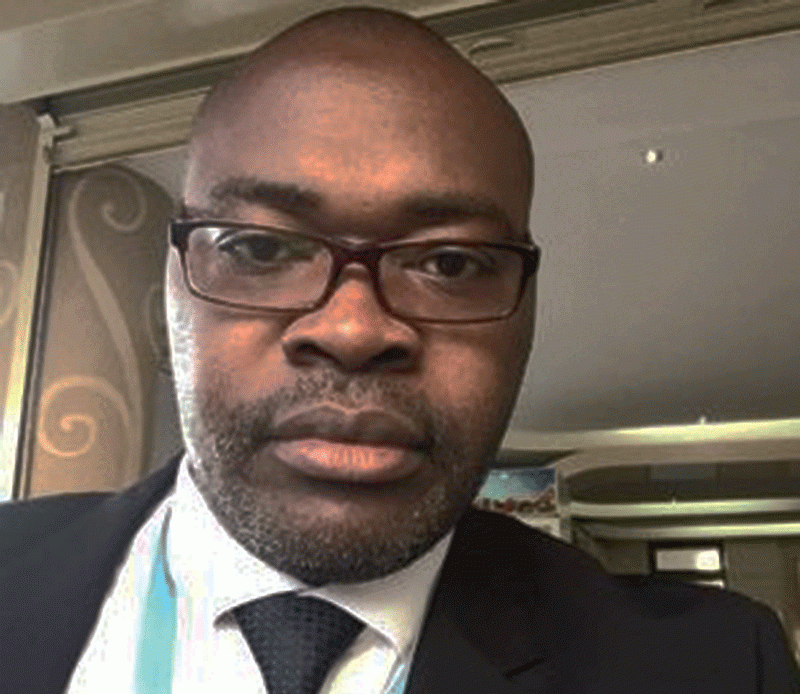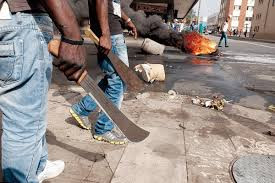
South Africa will turn 30 next year and the governing African National Congress (ANC) has been lauded for keeping things together for such a long time. This praise is usually used when comparing with other revolutionary parties in Africa that have destroyed economies inherited from colonial administrations. With a stagnant economy, an energy crisis that is threatening to ground the economy to its knees, the current cholera outbreak in Hammanskraal north of Pretoria, and spiking crime rates, it stands to be seen how far the ANC will keep it together and if they will handover over power should they lose elections.
In this instalment, the focus is on the justice and legal system in South Africa. The South African Constitution has been described as among the best in the world. Those who praise it claim that the Constitution is empowering, espouses fundamental human values, attempts to heal the divisions of the past, is focused on improving the quality of life and freeing the potential of all South Africans. They add that the Constitution is also based on democratic values, social justice and fundamental human rights.
These superlatives hide what is at the heart of the South African Constitution. It favours and protects the white people from the colonial era more than it does other races contrary to what is purported by those who praise it. It is for these reasons that it has received global praise because it protects Western interests and people of Western origin in South Africa.
For starters, it cemented and legitimised the historical economic imbalances for which the war was fought. It does this by giving more emphasis on the protection of property rights in a context where historically and up to this day the economy and the means of production remain in the hands of a few white people. One can only enjoy property rights when they do own something, therefore, technically this means the few white people who own the means of production and economy are enjoying this constitutional provision over the rest.
This anomaly extends to the criminal justice system because it was designed to protect former apartheid perpetrators of human rights violations, murder, and atrocities. For the same reasons, the Constitution favours the rights, protection, and freedom of the perpetrators over the victim. A criminal in South Africa has more opportunities of circumventing the prescribed punishment by the law than a victim has for recovery and rehabilitation.
In that kind of situation, the law and the justice system become incapable of being a deterrent to crime. It is for this reason and others that crime continues to spike because there is more than a second chance before and after arrest. The crime index ranking puts South Africa as the most dangerous country in Africa in 2022 ahead of Angola, Somalia and Cameroon. Murder and organised crime are particularly widespread, with the year 2022 recording one of the highest murder rates globally, according to the crime index ranking.
Of late there has been an increase in cases of murder of high-profile people such as the musicians Lucky Dube, Kiernan Jarryd Forbes (AKA) and Oupa John Sefoka (DJ Sumbody) as well as national team goalkeeper Senzo Meyiwa and the model Reeva Steenkamp by the blade runner Oscar Pistorius — just to name a few. There are a lot more high-profile cases such as the never-ending arms deal, the current Thabo Bester prison escape, and many others.
What is common in most of these cases is that they took too long to conclude because the Constitution and the laws protect the perpetrators under the presumption of innocence and avail the perpetrator opportunities to circumvent justice. And if these fail, once one is charged and sentenced, they can still apply for parole — the temporary or permanent release of a prisoner before the expiry of a sentence, on the promise of good behaviour.
- Cheeky armed robbers jailed 10 years each
- Dangers of Arab Spring in SA
- Dangers of Arab Spring in SA
- Ramaphosa faces ANC leadership challenge
Keep Reading
Those who crafted the Constitution and laws in South Africa did so with the fear that the new South African government in 1994 would venture on to a retribution mission against the bad boys of the apartheid system. And to mitigate that, they weakened the criminal justice system by granting so many opportunities to perpetrators of crime oblivious that they were planting seeds for the growth of crime in the country.
For example, most of former President Jacob Zuma’s court cases collapsed due to technical reasons. Janusz Walus who killed South African anti-apartheid hero Chris Hani and faced a life sentence, was released last year on parole. Schabir Shaik, a South African businessman, who was found guilty of corruption and fraud in 2005 was released in 2009 on medical parole, after serving two years and four months of his 15-year prison term. Oscar Pistorius, who murdered his girlfriend Reeva Steenkamp and was sentenced to 13 years in prison, had his parole turned down only for not having served enough time to qualify for early release, otherwise, he will be out soon. The Senzo Meyiwa case has been dragging on since 2014 and there are many more criminal cases that are yet to see their day in court. National television stations are turning into crime and court reality shows.
- Tapiwa Gomo is a development consultant based in Pretoria, South Africa. He writes here in his personal capacity.










